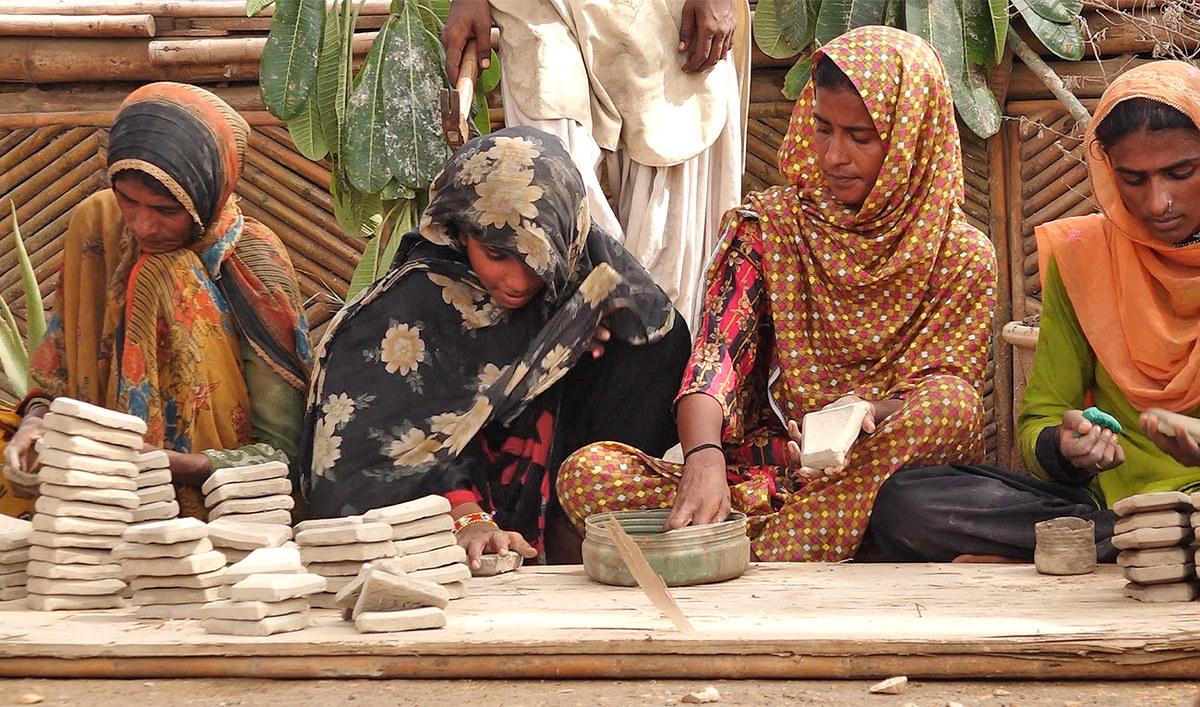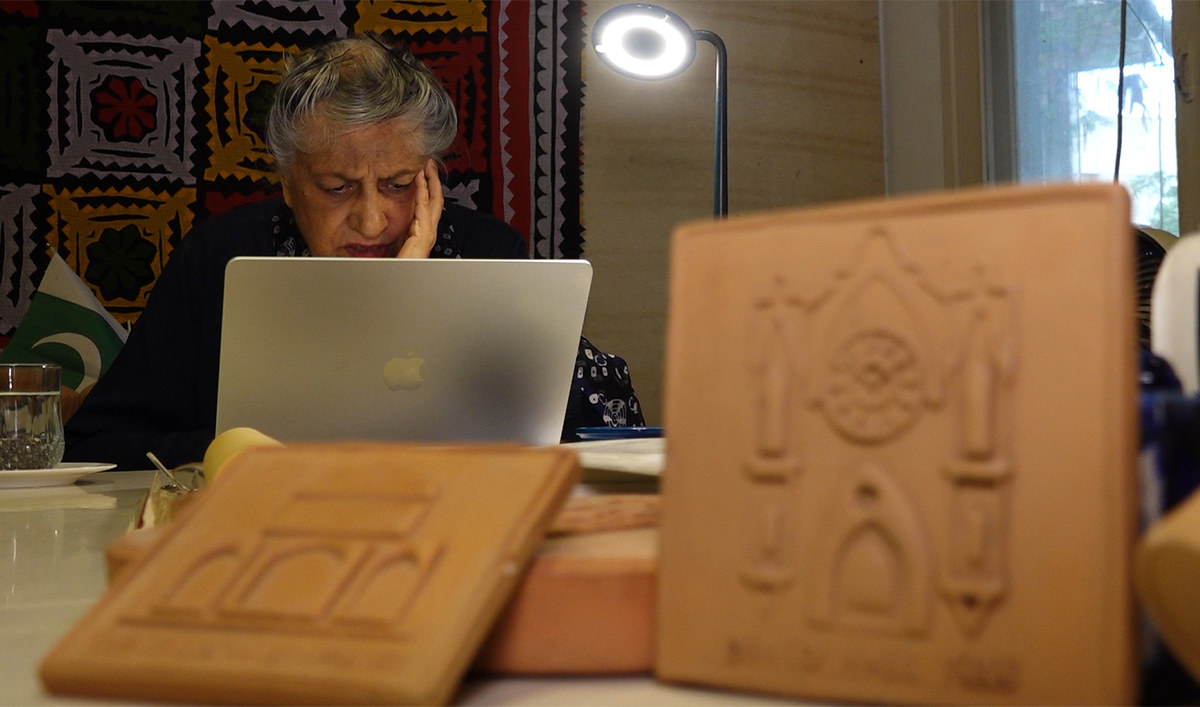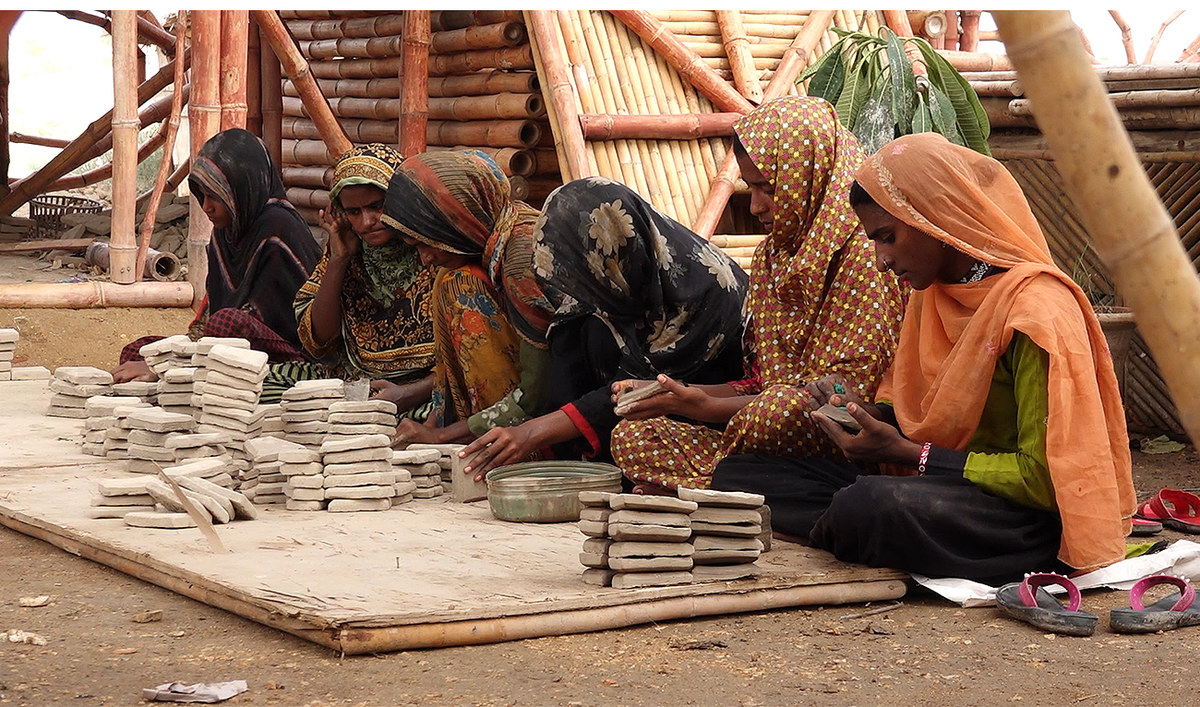MAKLI, Thatta: Hoor Noor used her hands to shape the clay into a tile under the shade of a bamboo structure as the harsh sun shone down around her on the sprawling Makli Necropolis, among the largest cemeteries in the world.
Until a few years ago, Noor used to be among dozens of women beggars at the cemetery located near the city of Thatta in Pakistan’s southern Sindh province. In 2018, celebrated Pakistani architect Yasmeen Lari decided to help beggarwomen earn a dignified living and launched a program to teach them how to make kashi tiles, one of the oldest handicrafts in Sindh.
“Life used to be worthless before,” Noor, 55, who lives in the nearby Shikari village where the training facility was set up, told Arab News as she extracted a tile from a wooden mold. “Now even the children eat and drink well. Now, our life is good.”

Women make tiles in¬ÝMakli in Pakistan's southern Sindh province on July 20, 2024. (AN photo)
Makli has over half a million tombs and graves spread over an area of about 10 square kilometers. Among those buried are kings, queens, governors, saints, scholars, and philosophers, many of them lying in brick or stone monuments lavishly decorated with glazed tiles.
Now Noor takes the tiles she makes with her own hands to sell at the same shrines where she once used to beg for alms.
“She started to sell those Kashi tiles and suddenly she started to make money,” Lari told Arab News. “Once she started to make money, it was a changed scenario.”

Celebrated Pakistani architect Yasmeen Lari is working at her office in Karachi, Pakistan on July 20, 2024. (AN photo)
Noor‚Äôs story has inspired other women and Lari‚Äôs training program has been attended by around 230 beggars, most of them women, since it was launched.¬Ý
Tiles produced in the program have been used in several heritage places in Karachi, including the Denso Hall library and the historic Kharadar Chowk. In their latest project, the women are making tiles for a heritage street near the Pakistan State Oil House in Karachi‚Äôs upscale Clifton area. Ultimately, Lari‚Äôs goal is to train women from up to 15,000 Sindh villages in the craft of traditional kashi tilemaking.¬Ý
Indeed, as more streets and heritage structures are restored in Karachi, Lari said more women in Makli would find an honest day’s work.
‚ÄúThe more people will use it [kashi tiles] in the cities, the more these women will be able to be trained,‚Äù the architect said.¬Ý

Women make tiles in¬ÝMakli in Pakistan's southern Sindh province on July 20, 2024. (AN photo)
Those trained in the craft have already witnessed a dramatic improvement in their lives, with some earning as much as Rs20,000 [$71.98] per month, Lari said.¬Ý
‚ÄúAfter the household expenses, if money is left, we [also] buy small goats,‚Äù Hoor said as she wedged clay in her hands.¬Ý
Another craftswoman and mother of five, Samia Qadir, said she was glad her children were now able to go to school.
“My daughter gets to go to school,” Qadir told Arab News. “If I’d had the opportunity, I would have gone too …But I work, I make tiles, I am happy, and our children are also happy.”











